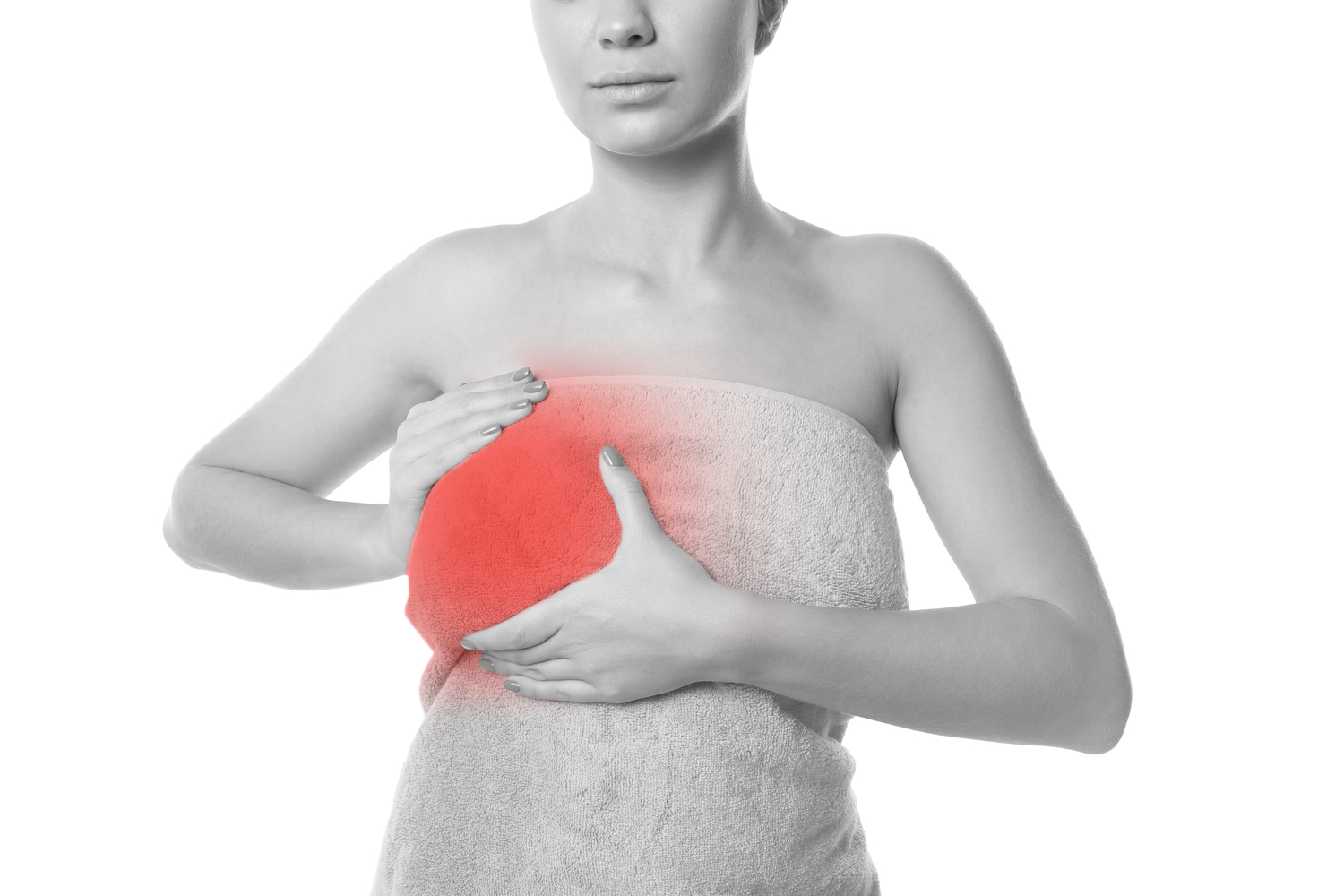An Overview Of Breast Pain
An overview of breast pain
Breast pain is an extremely common issue that women face. The pain may range from a slight tenderness around the breasts to sharp sensations that do not go away. Medically known as mastalgia, breast pain is extremely discomfiting. Most women experience pain in the breasts around the days that lead to their menstrual cycle. However, some women experience this pain throughout the month with no correlation to their monthly period.

Let’s take a look at the different breast pain causes, understand the symptoms, and explore the diagnosis and treatment options that are available.
What are the common breast pain causes?
Some of the common causes of breast pain are as follows:
- Water retention and hormonal fluctuations during the monthly menstrual cycle.
- Any infection of the breasts, such as mastitis.
- Any injury to the breast such as one that may arise from breast surgeries, be it a biopsy or a mastectomy.
- Breastfeeding.
- The growth of breast cysts (non-cancerous).
- Long-term consumption of certain medications, including certain cardiovascular medicines, oral contraceptives, steroids, and some mental health drugs
- Breast pain is a side effect of estrogen and progesterone hormone therapy
- Costochondritis, which is an inflammation of the cartilage that connects the breastbone and the ribs
- Wearing an ill-fitted bra
What is the difference between cyclical and non-cyclical breast pain?
- Cyclical breast pain occurs in conjunction with the monthly menstrual cycle. It is a dull, heavy aching that usually subsides once the period is done.
- Non-cyclical breast pain is not related to the monthly menstrual cycle. It generally affects women post-menopause and is a tight, burning sensation that may affect one or both the breasts.
What are the symptoms of breast pain?
The most common symptoms of breast pain include the following:
- A swelling in one or both breasts
- Nipple discharge
- Tenderness
- A burning sensation or a feeling of tightness in one or both breasts
- Breast lumps
- An accompanying redness in the affected area if the pain is caused by an infection
- If the pain is caused due to hormonal fluctuations and monthly menstruation, the sensitivity increases a few days before the period starts and subsides within one or two days after the period is done.
What is extramammary breast pain?
- Extramammary breast pain is pain that seems to be in the breasts, but its actual origin is elsewhere in the body.
- For instance, any pain in the chest cavity may arise from strenuous activities like lifting heavy objects and exercising. This pain may be mistaken for breast pain.
When should you see a doctor?
- If the pain doesn’t subside within a week
- If the pain seems to be worsening
- If you notice a growing redness or a lump in the area
- If the pain is so sharp that it interferes with your daily routine and work
How are breast pain causes diagnosed?
- An initial physical examination involves checking the breasts for physical signs of lumps. The doctor may also check for any swelling in the lymph nodes of your neck and underarms.
- Additional tests may include a mammogram and an ultrasound.
- In some cases, the doctor might recommend a breast biopsy, in which a small sample of the breast tissue is sent for a lab analysis.
What are the treatment options?
- The treatment options depend on the main cause of breast pain. In most cases, the pain goes away on its own and requires no medication.
- Your doctor may recommend antibiotics and non-steroidal anti-inflammatory medicines to deal with the pain and swelling.
- In some cases, a surgery might be required to remove a tumor.
What are some effective home remedies to relieve breast pain?